Help the editorial office have more resources to invest in content, especially technology.
Concerned about the tax rate for press agencies, National Assembly member Thach Phuoc Binh (Tra Vinh) raised the issue that, according to the provisions of Article 10 of the draft law, press agencies are still subject to the corporate income tax rate of 20%, however, at point d, clause 2, Article 13 of the draft law stipulates a preferential tax rate of 10% for press agencies' income from print activities in the press industry and profession, including newspaper advertising. Thus, there is an inadequacy in the tax rate policy for press agencies.
Specifically, there is a conflict between practice and tax policy. Online journalism is becoming the mainstream while print journalism is declining. Many newsrooms have cut back or stopped publishing print newspapers to focus on online journalism.
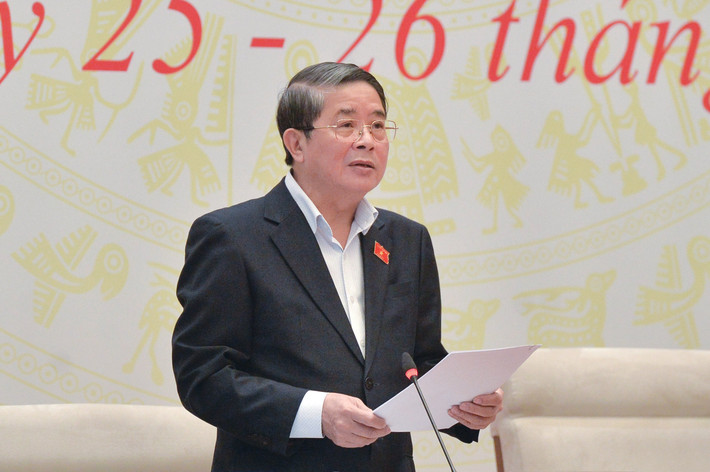
On the other hand, printed newspapers enjoy a preferential tax rate of 10%, while electronic newspapers are subject to a tax rate of 20%, although both serve the goal of providing official information, orienting public opinion and carrying out the communication tasks of the Party and State.
According to current trends, online newspapers have a large revenue stream from advertising, content fees and digital services. However, these revenue streams are still subject to a 20% tax rate, while print newspapers can enjoy a 10% tax rate on advertising.
The provisions in the draft law also have negative impacts on the press in the context of digital competition. Many online newspapers are facing difficulties in their operations due to declining advertising revenue, while still having to pay higher tax rates than print newspapers.
In addition, the State has a policy of digital transformation of newspapers, but tax policies have not kept up with reality, creating financial barriers for electronic press agencies. Platforms such as Google and Facebook currently account for the majority of platform revenue but are only subject to indirect taxes in our country, while domestic newspapers are subject to high taxes and have to compete fiercely with these platforms.
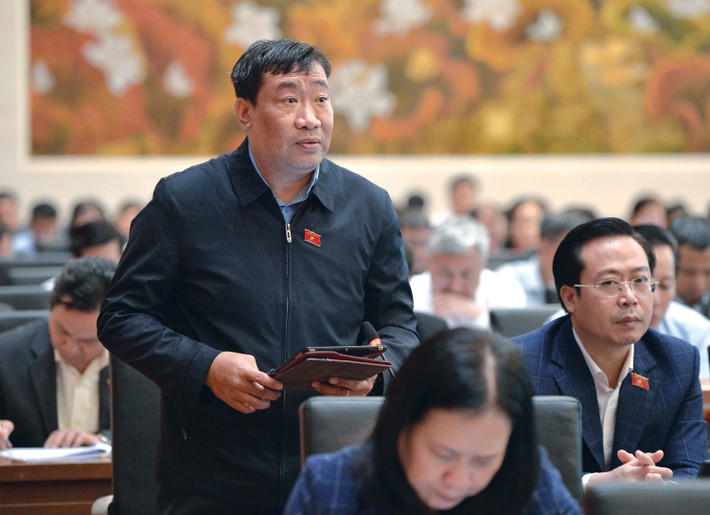
Based on the above facts, the delegates suggested that, in order to ensure fairness and encourage press development in the context of digital transformation, a tax rate of 10% should be applied to all press agencies, regardless of whether they are print or electronic newspapers. This solution brings many benefits.
That will support press agencies to overcome financial difficulties, maintain operations, ensure the quality of information content; create fairness between types of journalism, in line with the digital transformation trend; encourage sustainable development of journalism, helping newsrooms have more resources to invest in content, especially investment in technology.
“If we apply a 10% tax rate to all press agencies, it will contribute to improving competitiveness with cross-border platforms and protecting mainstream journalism,” the delegate emphasized.
According to the delegate, maintaining a 20% tax rate for electronic newspapers, while print newspapers enjoy a preferential 10% rate, is no longer suitable for reality, so it is necessary to amend tax policies, apply a common 10% tax rate to all press agencies, ensure fairness and support the press to develop sustainably in the digital age.
Proposal to reduce corporate income tax rate by another 2%
Also related to tax rate incentives, National Assembly Delegate To Ai Vang (Soc Trang) noted that Clause 1, Article 10 of the draft law stipulates: “The corporate income tax rate is 20%, except for the cases specified in Clause 2 and Clause 3 of this Article and the subjects eligible for tax rate incentives specified in Article 13 of this Law ”.
Delegates proposed that the draft Law consider reducing the corporate income tax rate by 2%, meaning that “the corporate income tax rate is 18%”. Currently, the proportion of small and medium enterprises accounts for about 95% of the total number of enterprises in the country, with unpredictable impacts on the regional and world economy, along with many internal difficulties of domestic small and medium enterprises. If the draft Law is considered, reducing corporate income tax by 2% will be very meaningful, helping businesses stabilize their sustainable and long-term development strategy.
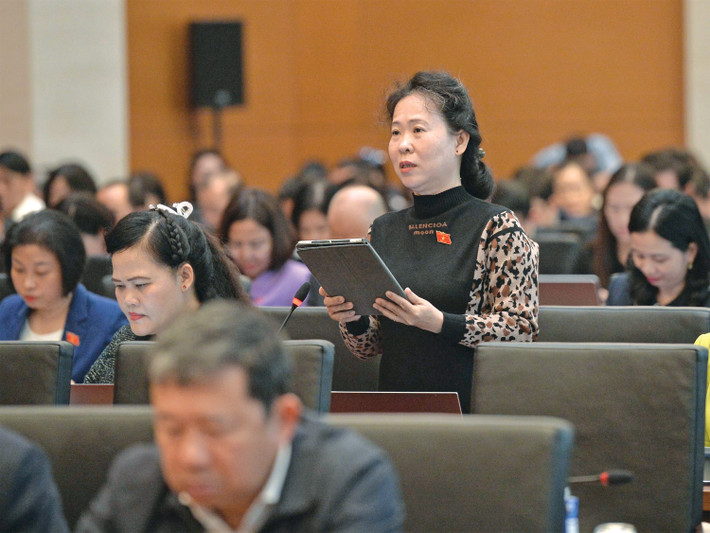
In Clause 1, Article 15, the draft law stipulates that "production, construction, and transportation enterprises that employ many female workers are entitled to a reduction in corporate income tax equal to the additional expenses for female workers."
Delegate To Ai Vang suggested that the draft Law should add a provision that “Seafood and garment enterprises that employ 50% or more female workers out of the total number of existing employees shall have their corporate income tax reduced by the additional amount spent on female workers”. Because seafood and garment enterprises attract more jobs for female workers.
In Clause 2, Article 15 stipulates that "enterprises employing many ethnic minority workers are entitled to a reduction in corporate income tax equal to the additional expenses for ethnic minority workers". Delegates suggested that the draft Law should stipulate that "Enterprises employing 30% or more ethnic minority workers out of the total number of existing workers are entitled to a reduction in corporate income tax equal to the additional expenses for ethnic minority workers".
According to delegate To Ai Vang, the tax exemption and reduction policy for enterprises employing 50% or more female workers and 30% or more ethnic minority workers is one of the important tax incentives, aiming to support enterprises in implementing support policies for female workers and ethnic minority workers according to the law, creating a favorable and harmonious working environment between employers and employees.
Concluding the discussion, Vice Chairman of the National Assembly Nguyen Duc Hai stated that the opinions of the National Assembly deputies had been recorded and fully transcribed, and requested the Secretary General of the National Assembly to synthesize the discussion opinions, send a report to the National Assembly deputies, and send it to relevant agencies for research, explanation, and completion of the draft law. The National Assembly Standing Committee will coordinate with the Government to direct the drafting agency and the verification agency to seriously absorb the opinions of full-time National Assembly deputies, the opinions of the National Assembly delegations, and relevant agencies and organizations to complete the draft law, and submit it to the National Assembly for consideration and approval at the upcoming Ninth Session.
Source: https://daibieunhandan.vn/de-xuat-ap-dung-muc-thue-suat-10-cho-toan-bo-co-quan-bao-chi-post408405.html






![[Photo] Prime Minister Pham Minh Chinh chairs Government Standing Committee meeting on Gia Binh airport project](https://vphoto.vietnam.vn/thumb/1200x675/vietnam/resource/IMAGE/2025/5/10/6d3bef55258d417b9bca53fbefd4aeee)



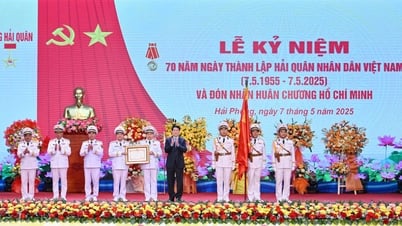
































































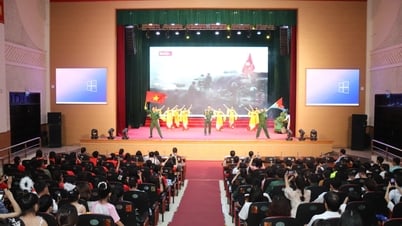












Comment (0)